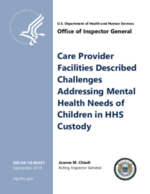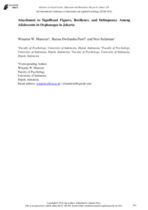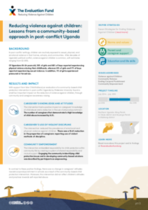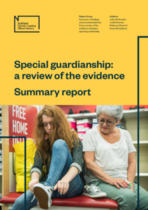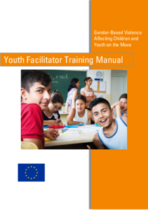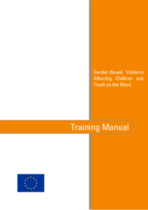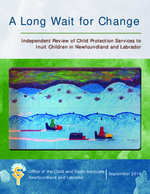Care Provider Facilities Described Challenges Addressing Mental Health Needs of Children in HHS Custody
The authors of this review from the U.S. Office of Inspector General conducted qualitative analysis to identify the most significant challenges that facilities faced in addressing the mental health needs of children in the Office of Refugee Resettlement (ORR) custody.

